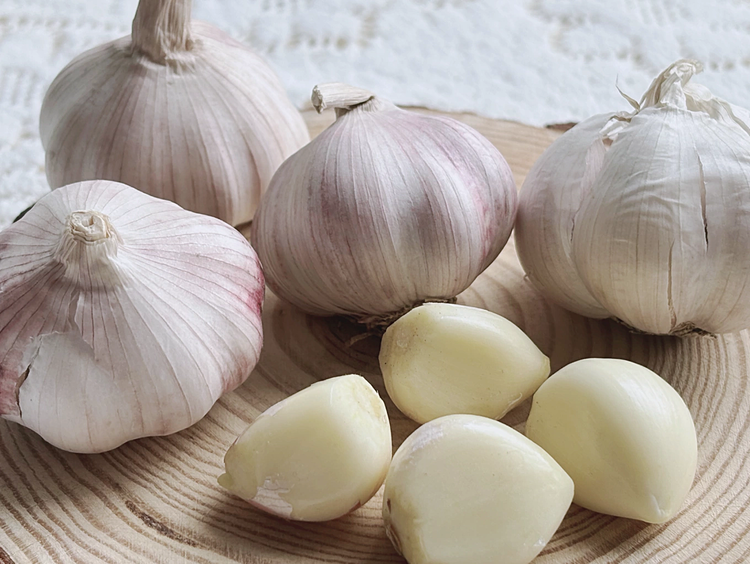Answer:
Garlic is not only used as food but is also a traditional medicine in cultures worldwide. It has a pungent, warm nature and is used to improve digestion, strengthen the spleen, detoxify, reduce swelling, kill parasites, prevent dysentery, promote circulation, and relieve stagnation. The active compounds in garlic, especially allicin, can improve immunity and fight bacteria and viruses, helping treat respiratory infections and the flu.
While studies suggest potential blood pressure benefits from garlic, no scientific evidence supports it as a replacement for prescribed medication. Research remains limited and inconclusive, so reputable cardiovascular associations do not recommend garlic for treating high blood pressure.
Consuming too much garlic can irritate the stomach and intestinal lining, causing discomfort such as belching, heartburn, and bad breath. Therefore, use garlic moderately in your daily diet, either raw or cooked, depending on your preference and health.
Garlic can support cardiovascular health, but it is not a medicine substitute. To manage blood pressure and cholesterol, follow your doctor's prescribed treatment, reduce your salt and unhealthy fat intake, increase your consumption of vegetables and fruits, exercise for 30 minutes daily, maintain a healthy weight, and attend regular checkups. Consult your doctor before adding garlic to your diet, especially if you have existing health conditions.
 |
Illustration: Bao Bao |
Doctor Bui Thi Yen Nhi
University of Medicine and Pharmacy Hospital, TP HCM












